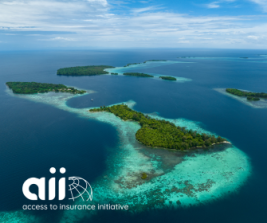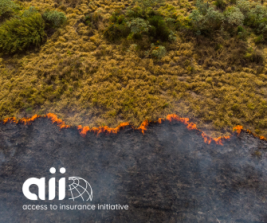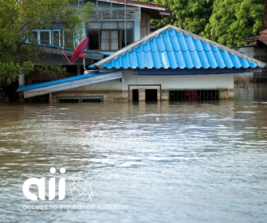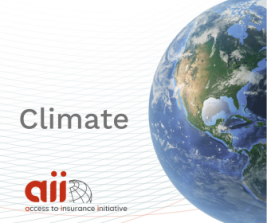Envisioning Responsible Finance in the Context of Climate Change – the Role of Insurance Supervision
Envisioning Responsible Finance in the Context of Climate Change – the Role of Insurance Supervision
This blog post was originally published on the Center for Financial Inclusion (CFI) blog.
The impacts of climate change are diverse and wide-ranging. Its most immediate manifestations, such as natural catastrophes and extreme weather events, sea level rise, damage to biodiversity, and communicable diseases, amplify the hardships on developing economies which are often more vulnerable to damage and have fewer resources available to support the recovery. The December 2022 RFF discussions explored the links between responsible finance and the challenges posed by climate change.
Preparedness, Risk Management, and Insurance
Along the lines of the three key themes of the December 2022 RFF convening – consumer protection, the role of stakeholders, and the path forward in the face of climate change – insurance has an important role. Insurance can strengthen the resilience of vulnerable communities and help them adapt to the climatic changes impacting their lives. If leveraged systematically for both transition and physical risks, it can contribute to the health of the entire financial sector.
If leveraged systematically for both transition and physical risks, insurance can contribute to the health of the entire financial sector.
The role of insurance supervision in this extraordinarily complex challenge is far-reaching and multifaceted. As the guardians of consumer protection and financial stability, enablers of innovation and market development, and policy influencers, supervisors are in a position to contribute to financial literacy efforts, establish standards and expectations for financial institutions, remove regulatory barriers for new or innovative solutions, assess risk management practices, support the efforts of the government bodies, and convene forward-looking multistakeholder initiatives. Access to Insurance Initiative (A2ii) has supported insurance supervisors in promoting the development of inclusive insurance markets in low- and middle-income countries, in the context of climate and disaster risk, among other key focus areas.
But strengthening the financial system’s resilience in the face of climate change requires systemic solutions and a comprehensive disaster risk management strategy. This can only be achieved through collaboration and innovative approaches from various stakeholders. Supervisory engagement with the industry players, for instance, develops an understanding of the practical challenges and regulatory barriers that providers face in bringing new products to consumers.
A2ii’s Work on Climate and Disaster Risk
In recognition of this, the A2ii launched the third Inclusive Insurance Innovation Lab on climate – the first lab with a thematic focus. As part of the project, regulators and other key stakeholders of the insurance space (i.e., government representatives, the industry, distribution, and the nonprofit sector) convened in a year-long process of finding innovative approaches to closing the protection gap against climate change headwinds.
The selected country teams of Costa Rica, Grenada, Zambia, and Zimbabwe emerged from the lab process with the following:
- A web-based platform for small hoteliers providing risk assessments and sustainable solutions (Costa Rica)
- A mutual risk pool providing direct relief to farmers and fisherfolk after a climate-related disaster (Grenada)
- An awareness-raising campaign for agriculture stakeholders jointly with community champions (Zambia)
- A bundled product – the Farmer’s Basket – offering Affordable Area Yield Index Insurance with inputs like pesticides, fertilizers, and irrigation equipment (Zimbabwe)
On the capacity-building side, Connect.A2ii, A2ii’s learning and exchange platform for supervisors, offers trainings on the topic.
- The Supervision of Climate-Related Risks in the Insurance Sector training is based on the joint IAIS-SIF Application Paper. The training module includes recommendations for supervisors on five key areas: i. supervisory review and reporting; ii. corporate governance, risk management and internal controls; iii. enterprise risk management for solvency purposes; iv. investments; and v. disclosures.
- The Inclusive Insurance Training is delivered multiple times per year in English, Spanish, and French and features an important foundational climate and environmental risk module. The module is designed to provide insight into the nature and effects of climate risks on insurers, economies, and consumers, with a focus on inclusive insurance markets. It also explores the role of financial institutions and the role of the supervisor.
Index insurance is undoubtedly on the path forward in the face of climate change. However, in emerging markets globally, regulatory frameworks are adapting cautiously with solutions coming from the industry. Supervisory capacity-building, information, and peer exchange on how to regulate and encourage the development of responsible and sustainable index-based solutions are critical.
Supervisory capacity-building, information, and peer exchange on how to regulate and encourage the development of responsible and sustainable index-based solutions are critical.
Looking to support supervisors in understanding the mechanics of index insurance, A2ii has recently partnered with the UNCDF Pacific Insurance and Climate Adaptation Programme (PICAP) to publish a best practices report on index insurance, sourcing from the Pacific Island countries. The publication provides valuable insight for the region and beyond and guidance on enabling regulatory frameworks to develop index insurance.
Additionally, the upcoming A2ii-IAIS Public Dialogue – Index Insurance Best Practices will provide a platform to meet and discuss key insights from the report, including regulatory guidelines for index insurance solutions.
In conclusion, supervisors are increasingly recognizing the importance of addressing climate change impacts as well as the emerging opportunities arising from the challenge. Doing things differently will require building new partnerships for novel products and business models, aligning regulation and technology to be hand-in-hand. The goal is to build more robust insurance value chain ecosystems and resilient communities. A2ii is committed to accompanying supervisors on this learning journey through future capacity building, multistakeholder initiatives, knowledge generation, and dialogue.
Share this article
Also in Blog





Authors
Posts by Author
Topics Cloud
Subscribe to our list
Receive notifications when we publish new blog entries
Subscribe here


